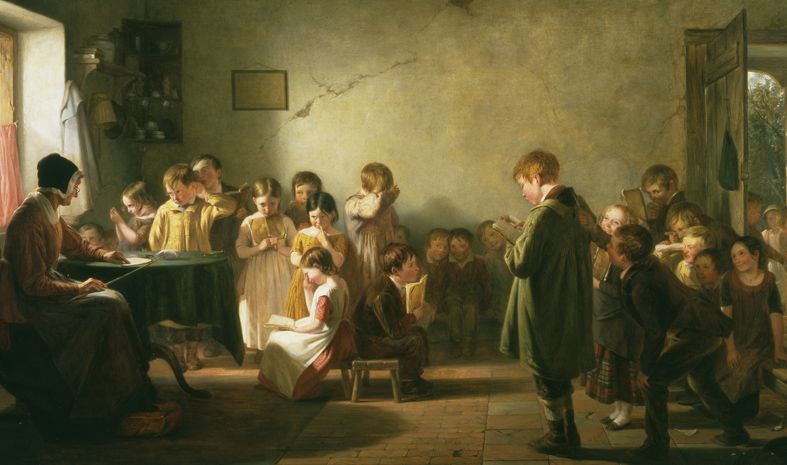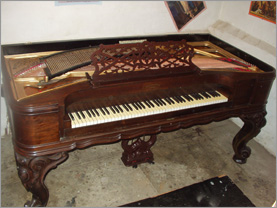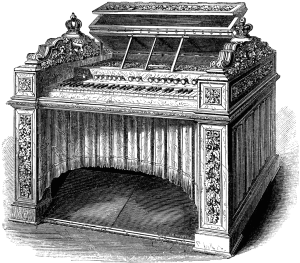Minnie Frisby (b. 1877): Education and Schooling
Education for Victorian working-class women was somewhat of a luxury. The 1870 Education Act gave children an elementary education up to thirteen, including reading, writing and arithmetic.
In Memories Minnie fails to disclose details about her education but recalls how she reached the highest level of schooling available. Afterwards, she was forced to leave,
‘I left school when I was twelve years old, after reaching 6th standard which was the highest in those days, after which we could leave.’ (Frisby, I:16)
This lucid education meant that Minnie would have left school being able to read fluently with expression, write a letter and have a working knowledge of fractions and proportions.
Initially, I understood that Minnie’s family were in favour of education. This is because Minnie discusses the various types of schooling she and her siblings received. Some attended a Dame School and others the National School. However, Minnie recognises how she was forced to leave education and help at home,
‘I would very much have liked to stay at school and become a teacher… but no, I must leave school as my parents said they wanted me to do some work, school wasn’t work. (Lizzie Powell’s parents allowed her to become a teacher).’ (Frisby, I:16)
There is a bitterness to Minnie’s tone towards the decision to leave education. There is also jealousy aimed towards Lizzie as she became the teacher that Minnie had always wanted. Lizzie also had the support of her family.

Religion played an important part in Minnie’s childhood and later life. She recalls how her ‘mother and father were pretty religious’. (Frisby, I:10) Therefore, Chapel and Sunday School were a regularity. Minnie remembers how the sermons were ‘dry and monotonous’ and it was a time when the children wished to be outside playing. (Frisby, I:10) However, it was Chapel where Minnie would have begun reading and understanding Biblical teachings.

The level of musicality within Minnie’s family is high. Her memoir is littered with poems and songs that she remembers from her childhood. Her brother Will purchased her father a concertina ‘which he learned to play very well; and also taught me [Minnie]’ (Frisby, I:11).
Auto-didacticism played an important part in Minnie’s own learning. She was able to master the mouth organ, melodeon and harmonium with the help of her father. Thus showing how instruments were not only a past time but an educational tool for the family.
Continuing the theme of music, Minnie’s sister Rose purchased piano lessons for her,
‘Well Rose, that was my sisters name, made much of me, as I was quite a smart girl now, and she wanted me to learn all I could; she sent me to music lessons and bought me a piano for a present, which was sent home and stood in the little parlour.’ (Frisby, I:19)
In the nineteenth century music lessons were largely for middle class women and not the rural working classes. However, Minnie gave up her early teenage life to support Rose in her shop after she was widowed. Therefore, it is likely that Rose would have been thanking Minnie for her help and support.

Self-evidently Minnie was a bright woman and she used her musicality to play the harmonium during Sunday service. As a result of this Minnie was also a Sunday School teacher. She recalls how two or three ‘unruly boys’ would disrupt her classes and how she wished to ‘turn them out’ rather than teach them. (Frisby, II:18) However, her mentor Mr Dolphin said,
‘These [boys] are just the ones we want, for they that are whole have no need for a physician, but they that are sick… He came not to call the righteous, but the sinners for repentance.’ (Frisby, II:19)
This remarkable quote changes the impression that Victorian education was reserved only for middle and upper classes. Clearly there were individuals who willingly tried to propel working-class education.
Some historians argue that working-class education allowed the people to be controlled, preparing them only for hardship. However, Hopkins recognises that the 1870s-1900s ‘is the classic period which childhood was transformed, in that by the end of the century schooling replaced work as the recognised occupation of boys and girls from five onwards to at least twelve.’ (Hopkins, 231)
This idea lends itself to Minnie’s childhood. Being a school child of the 1880s enable her to receive an education, albeit basic. She was then able to build on her educational foundation and become a successful working woman, mother and wife in her adult life. She was also able to write Memories for her family to enjoy.
References:
Frisby, Minnie. ‘Memories’, Burnett Archive of Working Class Autobiography, University of Brunel Library, Special Collection, 1:250
Hopkins, Eric, Childhood Transformed: Working Class Children in Nineteenth Century England, (New York: St Martin’s Press, 1994)
Image References:
(accessed: 3/11/14)
(Accessed: 3/11/14)
(Accessed: 7/11/14)

Leave a Reply